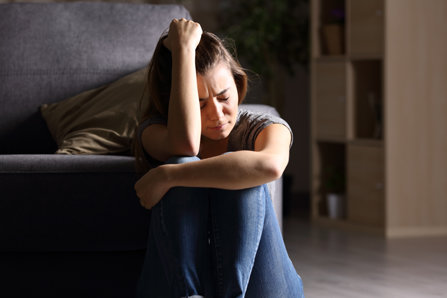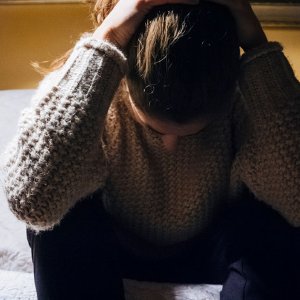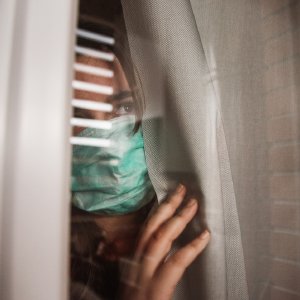Grief, Loss, Isolation and Addiction

When someone experiences a loss that is difficult to cope with, they may fall into a state of what’s commonly referred to as “grief.” This is someone so overwhelmed with negative emotion, they have shut down in response to some loss or trauma. While this response to loss is normal, for an addict, it can begin a spiral of addiction. Unable to find a healthy way to deal with the loss, the person is likely to increase the use of drugs and alcohol. During this time of the pandemic, matters are made considerably worse by the isolation caused by the need to shelter in place.
According to research from the National Institute on Drug Abuse, the isolation caused by COVID-19 resulted in an increase of drug and alcohol use. Going into isolation can be a compromising situation for someone struggling with underlying issues to find themselves in. Being in isolation with little stimulation can take even recovering addicts down a dark road and cause them to focus on their past substance abuse and other situations which contributed to their addiction.
Things have more recently begun to open up when it comes to COVID-19, with states rolling back some of the rules that were put in place to protect us from the virus. Many professionals are hopeful that this means that the increase in substance abuse will begin to subside. It is common for someone going through grief to isolate themselves and want to be left alone, at least initially when they are dealing with their emotions. The loss of a loved one for someone in the throes of addiction or in recovery can have a heavier impact sometimes. Leaving them to be confronted by their own shortcomings within the relationship with the loved one they have just lost.
Succumbing to these feelings and isolating oneself from others is the worst thing that can be done. This can leave a recovering addict to be left to face their regrets alone. This can even trigger strong feelings of wanting to use as the person once again attempts to numb the pain with either drugs or alcohol. Losing a loved one can make a person feel that they are unable to do anything to positively impact their life and environment, resulting in a feeling of powerlessness.
It makes sense an unexpected loss could cause someone to feel powerless. They were unable to stop themselves from parting ways with whatever it was that is now lost to them. Getting past the feeling of powerlessness can take some time and will surely be a process. This can easily result in a person doing everything they can to attempt to gain “control” once again. Whether it is an attempt to gain control or get away from the painful emotions, this can lead to bad decisions on their part. However, by continuing to engage with the world around them and gradually becoming more confident in one’s ability to change their environment, they can eventually use come to realize again that they are a dynamic part of their surroundings.
Teaching those recovering from addiction how to properly handle their emotion, address their past traumas, and communicate more effectively is one of the most effective deterrents against a relapse caused by the loss of a loved one. This is one of the reasons the Narconon program heavily focuses on these.
Restoring one’s confidence in the interconnectedness and interdependency of humanity is an important part of washing away lasting feelings of grief and powerlessness. When someone knows they can help others, they start to believe they can help themselves. Don’t get stuck in the cycle of grief, isolation, and addiction. Use the resources available to you or reach out to family and friends if you are going through a hard time in your life.
Resources:


